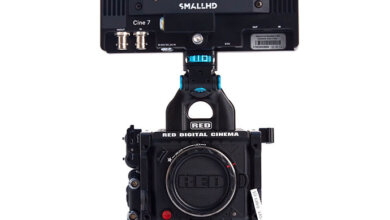Mastering the Art of Vehicle Wrapping: A Complete Guide to a Car Vinyl Wrap Course
In the fast-evolving world of automotive customization, car vinyl wrapping has emerged as one of the most in-demand and visually rewarding skills. Whether you’re an auto enthusiast, a detailer looking to diversify your services, or someone interested in starting a new business in a growing industry, taking a car vinyl wrap course is the gateway to professional-grade wrapping skills and long-term career opportunities.
This article explores everything you need to know about car vinyl wrap courses—what they offer, what skills you’ll learn, and how to choose the right one for your goals.
Why Learn Car Vinyl Wrapping?
Car vinyl wrapping isn’t just about aesthetics. It’s a valuable trade skill that blends precision, artistry, and technical knowledge. With the rise of colour change wraps, branded fleet graphics, and paint protection films, skilled wrap installers are in high demand globally.
Benefits of learning car vinyl wrapping include:
-
High earning potential: Professionals can earn between £1,000–£3,000 per wrap job.
-
Low overhead business model: Start with minimal investment and scale over time.
-
Creative satisfaction: Each project is a chance to create something unique.
-
Diverse applications: From personal cars and motorcycles to commercial fleets, buses, boats, and interior wraps.
What is a Car Vinyl Wrap Course?
A car vinyl wrap course is a hands-on training program designed to teach beginners and intermediate learners the correct techniques for applying vinyl film to vehicles. These courses are typically led by experienced professionals or certified trainers from leading brands like 3M, Avery Dennison, Hexis, or Samsung Interior Film.
Most courses are delivered in-person, though some now offer hybrid options with online theory and in-person practical training.
What You’ll Learn in a Professional Wrap Course
While courses may vary depending on the provider, most professional wrap training includes the following modules:
1. Introduction to Vinyl and Tools
-
Understanding different types of films (cast vs. calendered)
-
Choosing the right materials for different vehicles or wrap goals
-
Overview of tools: squeegees, heat guns, knives, surface cleaners
2. Surface Preparation
-
Cleaning techniques using isopropyl alcohol and clay bars
-
Decontamination and pre-wrap checks
-
Masking and disassembly for tight edge work
3. Cutting and Measuring
-
Safe cutting methods without damaging paintwork
-
Measuring templates and making efficient use of film rolls
4. Application Techniques
-
Proper vinyl handling and stretch control
-
Repositioning techniques with air-release channels
-
Wrapping complex curves, recessed areas, and door handles
-
Seaming, overlapping, and edge sealing for durability
5. Post-Installation Procedures
-
Post-heating techniques for cast vinyl
-
Avoiding lifting, bubbling, and edge failure
-
Maintenance tips for client education
6. Business and Sales Basics (optional in advanced courses)
-
Quoting projects and estimating material needs
-
Building a customer base and upselling wrap services
-
Social media marketing for car wrap businesses
Who Should Take a Car Vinyl Wrap Course?
A wrap course is ideal for:
-
Automotive detailers looking to expand services
-
Graphic designers or sign makers wanting to move into vehicle branding
-
DIY car enthusiasts interested in wrapping their own vehicles
-
Entrepreneurs starting a wrap studio or mobile service
-
Interior wrap professionals who want to transition into vehicle wraps
No prior experience is required for beginner-level courses. All you need is patience, a good eye for detail, and a willingness to learn.
What Makes a Good Car Vinyl Wrap Course?
Before enrolling, evaluate a course based on these factors:
Accreditation or Certification
Does the course offer a recognized certificate from a major film manufacturer (like 3M or Avery Dennison)? Certified courses enhance credibility when launching a wrap business.
Trainer Experience
Look for instructors with real-world installation experience and proven wrap portfolios.
Class Size
Smaller groups (under 8 participants) ensure more individual attention and hands-on time.
Tools and Materials Provided
Many top-tier courses include starter kits or allow you to work with premium branded materials during training.
Post-Course Support
Will you receive follow-up guidance, video tutorials, or access to a support group or forum?
Duration and Cost of Wrap Courses
-
Beginner-level courses: Typically 2–3 days; prices range from £500–£1,200
-
Advanced or certification courses: 4–5 days with practical exams; £1,200–£2,000+
-
Online options: Vary widely in quality, but usually supplement in-person experience rather than replace it
What Can You Do After Completing a Car Wrap Course?
Upon completion, you’ll be equipped to:
-
Start your own vehicle wrapping business or mobile service
-
Join an established wrap or signage company as a technician
-
Offer fleet branding, colour changes, or advertising wraps
-
Expand into related niches like interior architectural wrapping (doors, kitchens, walls)
With time, experience, and portfolio-building, many installers move into high-end custom wraps or specialize in luxury car protection.
Real Success Stories
Many successful wrap studio owners today started with just a weekend course, a few basic tools, and a drive to master the craft. From working on friends’ cars to landing commercial fleet accounts, the opportunity in this industry is vast.
One UK-based installer shared:“I took a weekend course and started wrapping in my garage. Now, I’ve wrapped supercars, managed fleet contracts, and I’m training my own team. It’s the best decision I’ve made.”
Final Thoughts: Is a Car Vinyl Wrap Course Worth It?
Absolutely—if you’re serious about entering the world of automotive customization, a car vinyl wrap course gives you the foundation, confidence, and practical skills needed to succeed. It saves time, prevents costly mistakes, and positions you ahead of self-taught competitors.
Whether you want to wrap your own vehicle, earn extra income on weekends, or launch a full-scale business, vinyl wrapping is a craft worth learning.
Ready to start your journey? Look for reputable training programs in your area and invest in a course that matches your ambitions.




